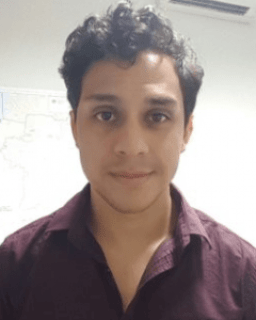
Position: CNTA Scholar (June 7-23 2021)
School and/or Centres: Centre for Native Title Anthropology
Email: laa.lopez22@gmail.com
As the requirements for connection increasingly rely on archival material (1) and historical resources have become more widely available to researchers including the Aboriginal public (2), the research process inevitably uncovers people’s connections to land, often connections which have been dislocated for several generations. The status of people who have ‘come out of the woodwork’ to reconnect with ancestral forebears poses important questions about claim group composition and governance of country.
A key question is whether the descendants of these descendants should continue to be acknowledged as part of the normative society when they have not played a performative role? What should be their status when the kinship links to the ancestors are vague or not remembered at all?
Responses from expert anthropologists I have worked with has varied. Some consider that archival material does not constitute sufficient proof. Whereas others argue that there is sufficient evidence for their inclusion despite the lack of contemporary involvement in the community. Both approaches can be problematic.
The former challenges connection, governance, and conflict. The latter accords with what has been articulated as ‘dormant rights’ which can be activated if some conditions are met (3), whereas the former negates such possibility.
In working through such conundrums in native title claims my experience is that restricting membership underplays the complex system of rights conferred by Aboriginal people (4). I suggest that the inclusion or exclusion of ‘people that came out of the woodwork’ must be understood in the context of types of rights to country; particularly with reference to ‘dormant’ or ‘inchoate’ rights, the requirements for the transition of these rights to ‘primary’ rights (if possible), and the role of the jural community in the process.
In this research project with CNTA I explore this hypothesis and its implications for urban/rural areas of the southern Cape York peninsula in North Queensland.
(1) See Queensland State Guidelines 2016
(2) For instance Community and Personal Histories Unit in Queensland and AIATSIS Family History Unit.
(3) Sutton, P 2003, Native Title in Australia: An Ethnographic Perspective, Cambridge University Press; and Macdonald, G 2011, Chapter 4: Territorial boundaries and society in the New South Wales Riverine: A Wiradjuri analysis in Bauman, T and Mcdonald, G (eds) Unsettling Anthropology the Demands of Native Title on Worn Concepts and Changing Lives, Australian Institute of Aboriginal and Torres Strait Islander Studies
(4) Sutton 2001 Kinds of Rights to Country: Recognising customary rights as incidents of Native Title. National Native Title Tribunal Occasional Papers Series.